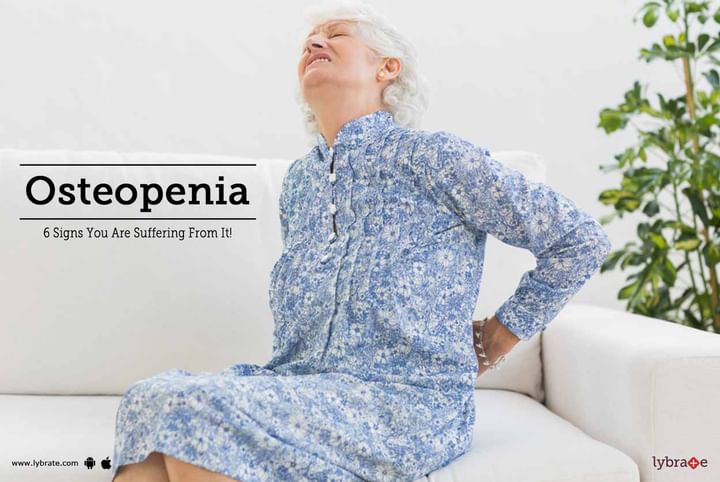Osteopenia - 6 Signs You Are Suffering From It!
We may be lost in progression and may have a lot to achieve in life, there may be things that we just cannot let go off, such as success and in such a rush for advancement and success we may be overlooking health in the bargain. Though we may not realize it, but as age progresses, the health takes a toll and the disease fighting and sustenance abilities of the body also start to decline. One of the most common problems that a lot of people go through is the weakening of the bones.
There may be instances, particularly in women, where they may feel fatigued and tired and this is something that most women may ignore so that they may be able to concentrate on the other aspects of life. However, more than often, the problems that the women face are known to be symptoms of health issues such as Osteopenia. Osteopenia is a problem of the bones where they gradually lose their natural ability to make sufficient amount of calcium necessary for the health and safety of the bone structure and when the problem takes a sever turn it may lead to osteoporosis.
Knowing the symptoms:
The problem of osteopenia may not have obvious symptoms in the beginning but people who suffer from the problem may complain of the following issues:
- A lot of people may experience lower back pain when they are suffering from osteopenia.
- The back pain may also arise from the hunching of the back which is another symptom of the health issue.
- There have been instances of patients suffering from lowering of the height when they are suffering from the bone related issue.
- The fracturing of bones becomes more likely for people who suffer from the problem.
- Lots of people may also end up losing teeth due to the issue.
- One of the biggest symptoms is that the patients of osteopenia usually also develop osteoporosis in the advanced stages of the issue.
Treating Osteopenia:
Though there is no confirmed cure for the issue, it is possible to be able to control the problem and limit its ill-effects or symptoms. With a revision of dietary habits to include foods that help in the increase of calcium you may be able to control the problem to a great extent. It may also be possible to keep the issue under check by following healthy lifestyle habits such as quitting smoking or following regular exercise routines or taking the right treatment or medications as suggested by a specialist. Sometimes a disease can be a result of an underlying illness that you are unaware of, which is why self-diagnosis or treatment may not be advised and it is always wiser to take help from your physician. If you wish to discuss about any specific problem, you can consult an Orthopedist.



+1.svg)
